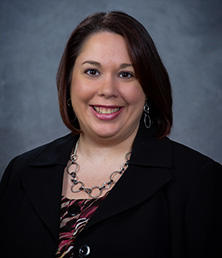Tax Deductions for Ag Real Estate and Single Family Residence Loans
As most Kansas banks are aware, earlier this year Kansas Governor Laura Kelly signed Senate Bill 15, in large part due to lobbying efforts by Kansas bankers and the Kansas Bankers Association.
Senate Bill 15 will enact the Kansas economic recovery loan deposit program, updating field of membership requirements of credit unions and allows privilege tax deductions on agricultural real estate loans and single family residence loans.
Specifically, as it relates to Kansas Privilege Tax deduction, the bill permits a deduction from net income, beginning in tax year 2023, equal to the net interest income received from qualified agricultural real estate and single family residence loans attributable to Kansas to the extent such interest is included in the Kansas taxable income.
The bill creates definitions for the terms “interest,” “qualified agricultural real estate,” and “single family residence.” It creates a calculation methodology for “net interest income received from qualified agricultural real estate loans” and for “net interest income from single family residence loans” as follows:
- Interest: Interest on indebtedness attributed to Kansas and incurred in the ordinary course of the active conduct of any business and interest on indebtedness incurred that is secured by a single family residence.
- Qualified agricultural real estate loans: Loans made on real property that is substantially used for the production of one of more agricultural products and that:
- Have maturities of not less than five years and not more than 40 years;
- Are secured by a first lien interest in real estate, except that the loans may be secured by a second lien interest if the institution also holds the first lien on the property; and
- Have an outstanding loan balance when made that is less than 85% of the appraised value of the real estate, except that a loan for which private mortgage insurance is obtained may exceed 85% of the appraised value of the real estate to the extent the loan amount in excess of 85% is covered by such insurance.
- Single family residence: A residence that is:
- The principal residence of its occupant;
- Located in Kansas in a rural area, as defined by the U.S. Department of Agriculture, that is not within an MSA and has a population of 2,500 or less as determined by the most recent census for which data is available; and
- Purchased or improved with the proceeds of the loan.
- Net interest income received from qualified agricultural real estate loans attributed to Kansas: The product of the ratio of the interest income earned on qualified agricultural real estate loans over total interest income earned, in relation to the net income of the national banking association, state bank, trust company, or savings and loan association without regard to this deduction
- Net interest income received from single family residence loans attributed to Kansas: The product of the ratio of the interest income earned on single family residence loans over total interest income earned, in relation to the net income of the national banking association, state bank, trust company, or savings and loan association without regard to this deduction.
Contact a K·Coe advisor with questions on the applicability of Bill 15’s guidance.









